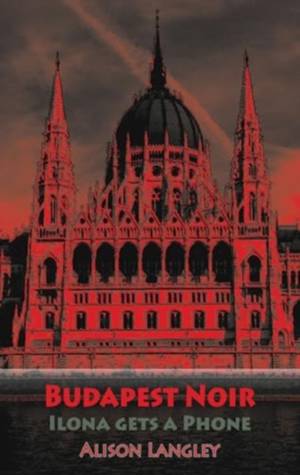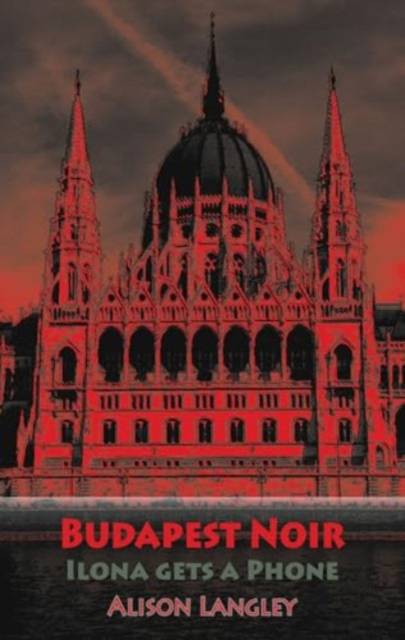
Door een staking bij bpost kan je online bestelling op dit moment iets langer onderweg zijn dan voorzien. Dringend iets nodig? Onze winkels ontvangen jou met open armen!
- Afhalen na 1 uur in een winkel met voorraad
- Gratis thuislevering in België vanaf € 30
- Ruim aanbod met 7 miljoen producten
Door een staking bij bpost kan je online bestelling op dit moment iets langer onderweg zijn dan voorzien. Dringend iets nodig? Onze winkels ontvangen jou met open armen!
- Afhalen na 1 uur in een winkel met voorraad
- Gratis thuislevering in België vanaf € 30
- Ruim aanbod met 7 miljoen producten
Zoeken
€ 16,45
+ 32 punten
Omschrijving
In Budapest Noir 1945, 1956 and 1974 merge into 1991 and a nation is allowed to remember the dark days of its past and come to terms with its history before seeking to move on to a different future.
The novel starts with Ilona getting a phone installed in 1991. This banal act has huge significance as before the fall of the Communist government Ilona was not allowed to have a phone as her husband took part in the 1956 Uprising and her son escaped in 1974. In 1991 with the aid of a Fullbright Scholarship with his wife and small child Ilona's son Emil returns to Budapest for the first time to create an exhibition about Hungary's transition to democracy. Ilona wants her son to get back what had been stolen from them by the Communists and make them rich while Emil just wants to make art and learn about the past. This clash of values nearly spells disaster.
There are flashbacks to the Russian army arriving in 1945 and the uprising in 1956. The novel recounts the dark and tragic events which took place. It is hard not to be moved to tears by what Ilona and her family had to endure. Her story is one that she shared with countless others in Budapest and Hungary during those dark days. Ilona never complains and never talks about the past, it is a weight she carries in silence.
The novel starts with Ilona getting a phone installed in 1991. This banal act has huge significance as before the fall of the Communist government Ilona was not allowed to have a phone as her husband took part in the 1956 Uprising and her son escaped in 1974. In 1991 with the aid of a Fullbright Scholarship with his wife and small child Ilona's son Emil returns to Budapest for the first time to create an exhibition about Hungary's transition to democracy. Ilona wants her son to get back what had been stolen from them by the Communists and make them rich while Emil just wants to make art and learn about the past. This clash of values nearly spells disaster.
There are flashbacks to the Russian army arriving in 1945 and the uprising in 1956. The novel recounts the dark and tragic events which took place. It is hard not to be moved to tears by what Ilona and her family had to endure. Her story is one that she shared with countless others in Budapest and Hungary during those dark days. Ilona never complains and never talks about the past, it is a weight she carries in silence.
Specificaties
Betrokkenen
- Auteur(s):
- Uitgeverij:
Inhoud
- Aantal bladzijden:
- 320
- Taal:
- Engels
- Reeks:
- Reeksnummer:
- nr. 5
Eigenschappen
- Productcode (EAN):
- 9781915568427
- Verschijningsdatum:
- 31/05/2025
- Uitvoering:
- Paperback
- Formaat:
- Trade paperback (VS)
- Afmetingen:
- 130 mm x 197 mm
- Gewicht:
- 281 g

Alleen bij Standaard Boekhandel
+ 32 punten op je klantenkaart van Standaard Boekhandel
Beoordelingen
We publiceren alleen reviews die voldoen aan de voorwaarden voor reviews. Bekijk onze voorwaarden voor reviews.











